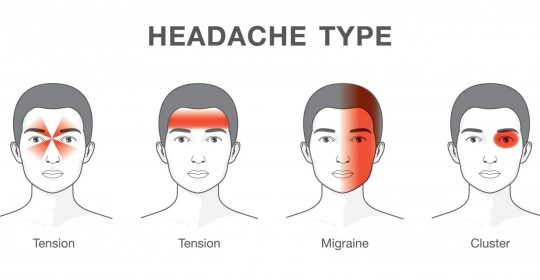
How to Combat Migraine Triggers
Migraines can cause severe throbbing sensations, usually on one side of the head, and can be followed by nausea, vomiting, sensitivity to light and sounds. A migraine will usually last for a few hours, and in severe cases for a few days.
Migraines are one of the leading serious health problems that affect women more often than they affect men. The more severe and frequent attacks are linked to changes in estrogen levels.
Common Migraine Triggers & How to Combat Them
- Dehydration
Around a third of the people who experience migraines say that dehydration is the main cause. In general, a lack of water intake has been attributed to causing headaches.
Solution:Make sure you stay hydrated throughout the day. Keeping a water bottle on hand with you at all times will help you hydrate and reduce the discomfort of a migraine.
- Sensitivity to Light
For many, harsh lighting conditions can cause severe migraines. This is also referred to as ‘Photophobia’ when natural and bright light, flicking or fluorescent bulbs cause severe discomfort to a person’s eyes.
Solution:If you’re sensitive to natural, outdoor light, try to keep a pair of sunglasses with you to protect your eyes. When faced with artificial, indoor lighting, try to sit closer to a window and avoid flickering lights if possible.
- Caffeine Consumption
Experts have reported that excessive caffeine consumption can trigger migraines. Additionally, caffeine withdrawal can also trigger headaches or migraines for some people.
Solution: Monitoring your intake of caffeine can help you reduce consumption. Keep in mind that coffee is not the only beverage that contains caffeine – it is also present in tea, soft drinks and energy drinks.
- Irregular Sleeping Patterns
Poor sleeping habits or not getting enough sleep can trigger migraines and even cause migraines to occur more frequently.
Solution: Try sticking to a strict bedtime every night and aim to get at least 8 hours of sleep. Avoid things such as the TV, cellphones and music before bed in order to be able to relax and fall asleep without any trouble.
- Stress
Around 4 out of 5 people report stress as a trigger to their migraines. Researchers believe that changes in the levels of Serotonin can be attributed to this.
Solution: Painkillers (ibuprofen, paracetamol) can help relieve pain caused by a migraine. If you are exposed to long hours in front of a screen (television or a computer), make sure to give your eyes a break – walking around for a few minutes at a time will give your eyes, and yourself, a well-deserved break. Relieving stress will help reduce the frequency of migraines as well; take a day to relax and invest in your wellbeing!
- Hormones
As mentioned previously, women experience migraines more often than men. Women may experience migraines during menstruation due to the changing hormone levels.
Solution: Changing your diet and lifestyle can help reduce the number of migraines that occur. There are also certain forms of birth control that are able to stabilize hormone levels and could prevent any future attacks.
- Irregular Meals
Hunger headaches can turn into migraines quickly and cause severe discomfort. Those who tend to skip meals throughout the day will have a migraine before they even realize that they’re hungry.
Solution: Make sure to eat regularly and ensure all meals are healthy and balanced. Fruits and protein bars throughout the day, in between meals, are good options for reducing the risk of a headache or migraine.
- Changes in Weather
Changes in the weather have been known to cause migraines for some people. These changes may cause imbalances in brain chemicals which prompts migraines.
Solution: Monitor the specific weather changes that cause your migraines and try to avoid it. If extremely cold weather is the cause, try to stay indoors and keep warm, or carry a jacket, a beanie or a scarf if you do need to go outdoors in the cold weather.

